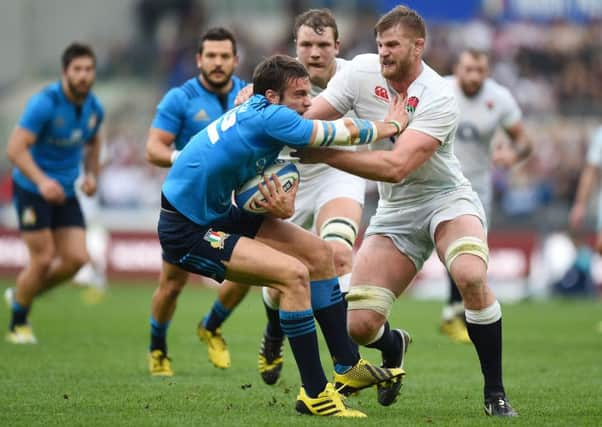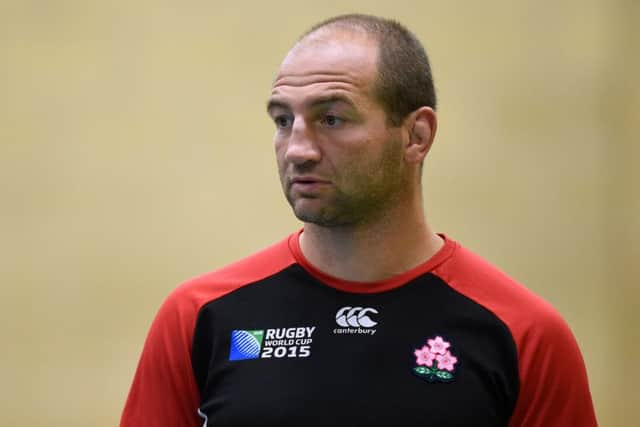Six Nations: Diversity crucial for England's title hopes, says Steve Borthwick


Borthwick’s speciality is rooted in the set-piece having completed a playing career in which he made his name as a line-out specialist steeped in the technicality of the game’s most intricate element.
Warren Gatland’s men foiled a last-gasp England line-out in last autumn’s World Cup, producing a crucial read that enabled them to clear their lines and set the hosts on the path to tournament ruin.
Advertisement
Hide AdAdvertisement
Hide AdKnowing that England’s calls will have been studied in minute detail by arch-rivals Wales, the forwards coach believes diversity is key to a play-book that numbers from 20-50 variations depending on the game situation.


“The level of analysis that goes on with every team now is incredible. That continues to step up as teams find better ways to analyse things,” Borthwick said.
“An important part of our game has been to vary our point of attack, how much we drive, how much we go off the top.
“And having different deliveries to ask different questions makes us harder to analyse. Those are things we plan to integrate more into our game.
Advertisement
Hide AdAdvertisement
Hide Ad“When you’re analysed as much as we are you must make sure that around the set piece you have that variety, find new ways to attack, new ways to defend, painting different pictures for the opposition.


“It’s an ongoing development process. I’m clear about where I want to get to and clear about how I integrate that into the forwards. To improve as we go along, that’s the challenge.
“We do a lot of work with the players, putting them into different scenarios.
“All we are asking is (for them) to make the right decisions at the right time.
Advertisement
Hide AdAdvertisement
Hide Ad“We have to have the players in those situations in training so they are as prepared as possible come match day.
“That’s in all areas of our game, making sure that they have felt the pressure, the chaotic nature of Test match rugby, within training.”
Calling the line-out at Twickenham on Saturday will be George Kruis, Borthwick’s protégé when the second rows played together at Saracens.
“Wales have got a lot of experience and some very good athletes, but this week has been all about us,” said Kruis, who has established himself as England’s first choice lock.
Advertisement
Hide AdAdvertisement
Hide Ad“We have been improving and looking to improve in the set-piece constantly. We are trying to build this brutal English pack that we talk about and we are on the way to doing so.
“We are trying to get to a new place in our line-out and obviously that involves a lot of detail and learning - just trying to push the boundaries of what we can do.
“I guess if you do what you’ve always done, you get what you always get. We are really trying to strive for the best and hopefully we are confident we will get that.”
England have lost replacement hooker Jamie George for the remaining two rounds of the Six Nations, so Luke Cowan-Dickie will supply cover for Dylan Hartley from the bench.
Advertisement
Hide AdAdvertisement
Hide AdGeorge ruptured a biceps tendon in training on Tuesday and a scan has revealed he will be sidelined for eight to 10 weeks.
“On the video of the training session, I watched the incident and it looked very innocuous,” added Borthwick.
“He carried on training and didn’t think much of it, but then realised it was worse than he thought and saw the doctor.”